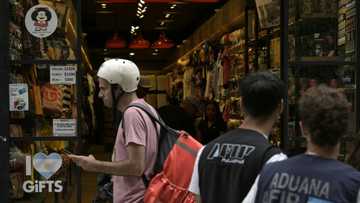US retail sales slump more than expected in January

Source: AFP
Retail sales in the United States fell more than analysts anticipated last month, bogged down by weak auto sales and lower gas prices, government data showed Thursday.
The 0.8 percent decline missed analyst expectations, bringing total sales down to $700.3 billion, said the Commerce Department.
This came after a strong showing in the consumer sector last year -- helped by labor market resilience -- supporting economic growth.
A larger than expected slowdown in spending, if it persists, could dim hopes that consumption continues its role as a key economic driver.
"The big picture here remains that consumers' spending was remarkably strong for much of last year, but some softening seems inevitable this year," said analysts at Pantheon Macroeconomics in a recent report.
Excluding the auto sector, retail sales fell 0.6 percent in January from December -- a development analysts attribute to higher rates on loans and the unwinding of pent up demand after supply chain problems were resolved.
PAY ATTENTION: Share your outstanding story with our editors! Please reach us through info@corp.legit.ng!
Removing gasoline stations, sales were down 0.8 percent over the same period.
Besides motor vehicles and parts dealers, who saw sales drop by 1.7 percent, sales at gas stations retreated 1.7 percent as well, the latest Commerce Department data showed.
Other areas showing weakness included building material and supplies dealers, as well as health and personal care stores.
But spending at restaurants and bars continued to hold up, expanding 0.7 percent.
The weakening in spending now comes as excess savings have "dwindled significantly, and real after-tax income growth is slowing," according to Pantheon.
"But a gradual moderation seems much more likely than a collapse, given the recent upturn in consumers' confidence," the economists' report said.
PAY ATTENTION: Stay Informed and follow us on Google News!
Source: AFP


